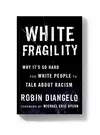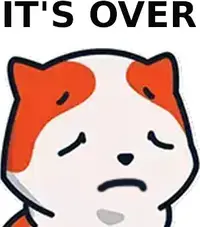The big economic story of 2023 was that inflation cooled off. The latest inflation numbers, released Thursday, showed that prices rose 0.3% in December, and were up 3.4% for all of 2023, down from 6.5% in 2022. And while the current inflation rate is still well above the Federal Reserve's target of 2%, it was cut almost in half last year, even as the U.S. economy has continued to grow, and unemployment has stayed below 4%.
Don't expect Americans to celebrate, though. They're still deeply dissatisfied with the economy, in large part because they are unhappy with the fact that even as inflation has come down, overall prices are still almost 20% higher than they were four years ago. In a Morning Consult poll from late November, more than half of those surveyed said they were "very concerned" with inflation. And in a recent Blueprint/YouGov poll, 64% of registered voters said that what they would most like to see improved in the economy was "lower prices."
In other words, even though we have disinflation (a decline in the rate at which prices are rising), what consumers want is deflation: for prices to drop. As Lisa Cook, a member of the Federal Reserve's Board of Governors, put it recently, "They want prices to be back where they were before the pandemic." In fact, consumers want it so badly that according to that Morning Consult poll, 63% of those surveyed said they would prefer that prices go down rather than that personal income go up.
The desire for lower prices is understandable and unsurprising: No one likes paying 20% more for the exact same product or service. But the truth is that if we actually did get economy-wide deflation, the cure would be worse than the disease.
That's because in our current economy, the only thing that could cause a meaningful and widespread drop in prices would be a cratering of demand, of the kind you see during massive economic downturns. If businesses were to stop investing and consumers were to stop spending, companies would probably slash prices in an effort to keep sales up. But we'd also see economic growth plummet, unemployment soar, and wages drop. That would be a bad trade.
Deflation would also likely make the economic downturn worse. When prices are falling, it makes sense to hold off on purchases or investments, since you know that you'll be able to buy or invest at a cheaper price down the road. So falling prices typically exacerbate the problem of weak demand, making it harder for the economy to get out of its recessionary spiral. That's what happened in Japan in the 1990s, when the collapse of a stock-market and real-estate bubble led to chronic deflation and a decade of economic stagnation.
To be fair, there are rare circumstances in which deflation and economic growth can go together. If the value of a country's currency rises sharply, goods and services can become cheaper without dinging economic growth. (Switzerland saw this happen from 2012 to 2016.) And rapid technological growth that dramatically expands a country's productive capacity can also result in lower prices and strong growth.
Neither of those situations, though, is relevant to the American economy today. In fact, since the turn of the 20th century, the only times our economy has seen sustained and meaningful deflation has been during disastrously bad recessions, including the downturn of 1920-1921 and, most obviously, the Great Depression. Between 1930 and 1933, prices dropped by an average of almost 7% a year (which is roughly what we'd need to get prices back to where they were before the pandemic). But that only happened because over that period the U.S. economy shrank by 25%, while unemployment hit 24.9%.
When people say they want lower prices, what they mean is that they want lower prices while their incomes stay the same. But what history tells us is that what we'd get instead is lower prices and higher unemployment, lower wages, and a shrinking economy.
What the economy needs, then, is not deflation. Instead, it needs inflation to stabilize at a manageable rate (which seems to be happening). And it needs real wages and salaries (that is, incomes after inflation) to rise. That's been happening for roughly the past year, with wages and salaries outpacing inflation to the point that according to Arin Dube, an economist at UMass-Amherst, average real wages are now higher than they were before the pandemic.
So far, the drop in inflation and the increase in real incomes hasn't made people feel buoyant about the economy. Some of that is because if we get a raise, we tend to explain it as the result of our own effort and merit, rather than the product of a strong economy and tight labor market. And some of it is because the impact of high inflation lingers long after prices stabilize.
Over time, though, if real wages keep rising, people will eventually adjust, since what really matters is not what something costs, but whether you can afford it. And there is, in any case, no better alternative. Having lower prices across the board sounds great in theory. But it would look very ugly in practice.
!chuds !nooticers another journo banger










Jump in the discussion.
No email address required.
Does anyone read these kinds of articles and actually agree? Or is it just blatant propaganda to everyone
Jump in the discussion.
No email address required.
Deflation is bad. You are r-slurred.
Jump in the discussion.
No email address required.
!r-slurs
Deflation rules i love cheap shit
Jump in the discussion.
No email address required.
This but unironically
Jump in the discussion.
No email address required.
More options
Context
No economy is only good when line goes up NOOOO!

Cheaper stuff? Heck yeah!

Jump in the discussion.
No email address required.
More options
Context
More options
Context
More options
Context
Jump in the discussion.
No email address required.
Jump in the discussion.
No email address required.
More options
Context
More options
Context
Never underestimate the neolib
underestimate the neolib
Jump in the discussion.
No email address required.
More options
Context
What do you mean you don't agree?
Jump in the discussion.
No email address required.
More options
Context
deflation really is an economic disaster, it's like ice-9 except it freezes the economy instead of the ocean
Jump in the discussion.
No email address required.
More options
Context
Theyre kinda right though. Prices will remain high until everyone realized they cant afford anything anymore and finally stop buying all the stuff they have been, then it will all crash.
Jump in the discussion.
No email address required.
More options
Context
More options
Context